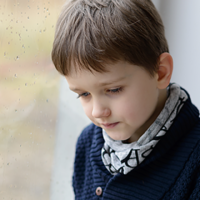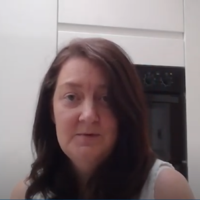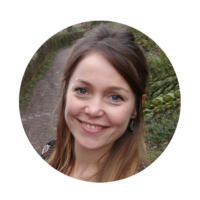Trauma
-

Emotional abuse during childhood is linked with differences in brain structure
Delia Gheorghe and colleagues at the University of Oxford have harnessed data from the UK Biobank to delineate the relationship between adverse experiences and brain structure. The researchers accessed brain imaging data together with retrospective reports of childhood adversity and adulthood partner abuse from more than 6,000 adults (mean age, 62.1 years).
Read more -

Making personalised predictions of poor functioning following negative childhood experiences
Experiencing abuse, neglect, bullying, or domestic violence in childhood increases the likelihood of having poor functioning in young adulthood, but this is not the case for everyone. Being able to accurately predict which individuals are at high risk for poor outcomes following such negative childhood experiences could support professionals to effectively target interventions. Is it possible to make accurate personalised predictions?
Read more -

‘CAMH professionals multi-dimensional role as clinician scientists’ In Conversation with Dr. Aisha Sanober Chachar
In this podcast, Dr. Aisha Sanober Chachar, recent ACAMH Awards 2020 Winner (Clinical) Trainee of the Year, talks about the many different roles a CAMH professional has, be it researcher, clinician, carer, and even storyteller.
Read more -

‘Understanding developmental cognitive science from different cultural perspectives’ – In Conversation with Tochukwu Nweze
Tochukwu Nweze, lecturer in the Department of Psychology, University of Nigeria, Nsukka and, PhD student in MRC Cognition and Brain Sciences Unit, University of Cambridge talks about his recent paper on parentally deprived Nigerian children having enhanced working memory ability, how important is it to study cultural differences in cognitive adaption during and following periods of adversity, and how can mental health professionals translate this understanding of difference into their work.
Read more -

‘Developmental language disorders and risk of recidivism among young offenders’ – video abstract
Video abstract from Dr. Maxine Winstanley on her paper in JCPP on ‘Developmental language disorders and risk of recidivism among young offenders’
Read more -

Help for teachers handling of disclosures of abuse and trauma
In this five minute film David Trickey, consultant clinical psychologist at the Anna Freud Centre, offers techniques and advice for teachers who find themselves faced with a child disclosing experiences of a traumatic nature.
Read more -

City living and psychosis: Unpicking an old question using new data
Decades of research point towards a role of urban upbringing in mental health problems, particularly psychosis. Leading theories often refer to the “stress of the city” as a driving factor. Developments in fields spanning geography to genetics call for renewed attention on the topic.
Read more -

‘Resilience – a complexity science approach’ Professor Anne-Laura Van Harmelen – ‘In Conversation’
Professor Anne-Laura Van Harmelen talks about her new appointment of Professor of Brain Safety and Resilience, the work of Risk and Resilience Group, and its work on HOPES project and RAISE Study.
Read more -

Associate Professor Mina Fazel ‘Child refugee mental health needs’ – In Conversation
Associate Professor Mina Fazel talks child refugee mental health, the predominant symptoms seen in this group, and how are these children and young people can be best supported.
Read more -

Nigerian young people from parentally deprived backgrounds show enhanced working memory capacity
Early adverse rearing can impair cognitive functions in all domains.1 However, those who take an evolutionary–developmental stance propose that there could be adaptive benefits associated with early adverse rearing.2,3
Read more